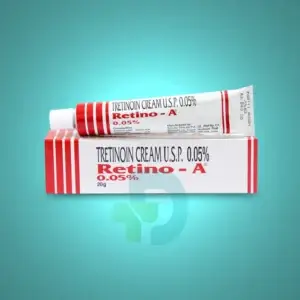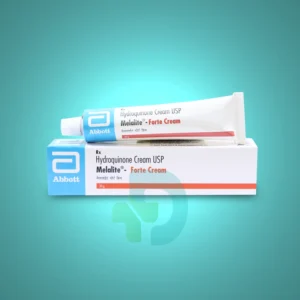It is a topical skin-lightening cream widely used to treat hyperpigmentation, scarring, and other skin conditions. While Hydroquinone Serum is generally considered safe when used according to directions, it can have serious side effects if not used correctly. This guide post will cover Benoquin’s usage, dosage, side effects, and drug interactions to help you decide whether this medication is proper for you.
What is Benoquin?
It is a topical skin bleaching agent used to lighten areas of hyperpigmentation, such as age spots, sun spots, and melasma. The cream contains the active ingredient hydroquinone, which curbs the production of melanin in the skin, a pigment responsible for darkening the skin. With the reduction of melanin in the skin, the cream can help to lighten areas of hyperpigmentation and give the skin a more even tone. Benoquin cream is available by prescription only and should be applied to the affected area(s) of the skin once or twice daily as directed by your doctor. Be sure to use it exactly as prescribed by your doctor. Use only what is required. Do not use the cream for longer than 4-6 weeks unless directed by your doctor, as this may increase the risk for side effects. If you are using other topical medications on the same skin area, apply them at least 30 minutes before or after applying the cream.
What is the dosage of Benoquin?
The recommended dosage of 20% cream applied topically to the affected area 2 to 3 times daily. Apply a thin portion of the cream on your skin and evenly over the entire region. It is essential to use the cream sparingly, as too much can cause skin irritation.
What are the side effects of Benoquin?
It is a topical medication used to treat vitiligo, in which the skin loses its pigmentation. The most common side effect of it is skin irritation. Other potential side effects include:
- Allergic reactions (rash, hives, itching, difficulty breathing)
- Eye irritation (if the product gets into the eyes)
- Stinging or burning sensation (when applied to the skin)
Contact your doctor or seek medical attention immediately if you feel such side effects.
What are the drug interactions of Benoquin?
The drug interactions of Benoquin are diverse and potentially severe. The most common and well-known interactions are:
Warfarin (Coumadin): The interaction between these two drugs occurs because it can increase the effects of Warfarin. This means that Warfarin may not work as well in preventing strokes and other blood clots. In addition, the increased impact of Warfarin may lead to bleeding or bruising more easily.
Aspirin: If you are taking it to treat vitiligo, the combination with Aspirin may ease inflammation and associated pain. If you are taking Aspirin for pain relief, the combination with Benoquin may help to increase its efficacy.
NSAIDs: Benoquin, or monobenzone, is a topical depigmenting agent used to treat vitiligo. Benoquin and NSAIDs can increase the risk of adverse effects such as gastrointestinal bleeding and kidney damage when used together.
Antibiotics: When used together, these drugs can cause a dramatic increase in melanin production, leading to hyperpigmentation. This can be extremely dangerous and even life-threatening in some cases.
Patients should talk to their doctor about all potential drug interactions before taking Benoquin.
FAQ About Benoquin Cream 30gm
Can Benoquin be used for other skin conditions besides vitiligo?
Benoquin is primarily indicated for vitiligo and is not typically used for other skin conditions. Its depigmentation effects are specific to the treatment of vitiligo patches.
Are there any side effects associated with Benoquin?
Yes, Benoquin may cause side effects such as skin irritation, redness, burning, or itching at the application site. Hypersensitivity reactions and permanent depigmentation of normal skin have also been reported in some cases. It is important to discuss potential side effects with a healthcare provider before starting Benoquin treatment.
Is Benoquin available over-the-counter?
No, Benoquin is a prescription medication and is not available over-the-counter. It should be obtained with a valid prescription from a healthcare provider.
Can Benoquin be used on darker skin tones?
Benoquin can be used on darker skin tones, but it may carry a higher risk of noticeable depigmentation and hypopigmentation. Close monitoring and cautious application are advised when using Benoquin on darker skin tones.
Can Benoquin be used on tattoos?
Benoquin is not recommended for use on tattoos. Its depigmentation effects are specific to vitiligo patches and may not be effective or suitable for tattoo removal. Consult with a healthcare provider or dermatologist for appropriate tattoo removal options








Reviews
There are no reviews yet.